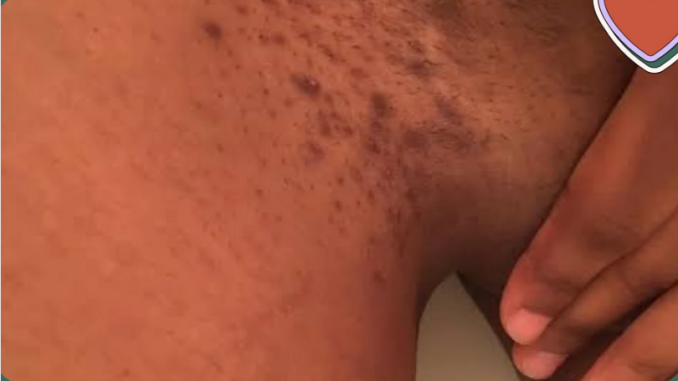
The color of our private areas can vary from person to person, and it is influenced by various factors such as genetics, hormones, and lifestyle choices. While it is normal to have variations in skin tone, some individuals may notice that their private area appears darker than the surrounding skin.
This can lead to self-consciousness and concerns about hygiene and aesthetics. In this article, we will explore the reasons why your private area may be dark and provide some suggestions on what you can do about it.
1. Hormonal Changes:
Hormonal changes in the body, such as those that occur during puberty, pregnancy, or menopause, can lead to increased pigmentation in the genital area. The surge in hormones can stimulate melanin production, resulting in darker skin. This is a natural occurrence and is usually temporary.
2. Friction and Rubbing:
According to healthline Constant friction and rubbing, such as wearing tight clothing or engaging in activities that cause repeated irritation, can lead to hyperpigmentation in the private area. The constant friction can cause inflammation and stimulate the production of melanin, resulting in a darker appearance.
3. Post-Inflammatory Hyperpigmentation:
Injuries, infections, or skin conditions in the genital area, such as fungal infections or dermatitis, can cause inflammation. As the skin heals, it may produce excess melanin, leading to post-inflammatory hyperpigmentation and a darker color.
4. Excessive Sun Exposure:
The skin in the genital area is sensitive and prone to sun damage, just like any other part of the body. Excessive sun exposure without proper protection can lead to increased melanin production and darkening of the skin.
What to Do About It:
– Maintain Proper Hygiene: Keeping the genital area clean and dry is essential for overall hygiene. Use gentle cleansers and avoid harsh soaps or excessive scrubbing, as they can further irritate the skin.
– Wear Loose-Fitting Clothing: Opt for loose-fitting, breathable underwear and clothing to minimize friction and irritation. This allows the skin to breathe and reduces the risk of darkening.
– Sun Protection: When spending time outdoors, especially in swimsuits or during activities that expose the private area to the sun, apply a broad-spectrum sunscreen with a high SPF to protect the skin from UV damage.
– Consult a Dermatologist: If you are concerned about the darkening of your private area, it is advisable to consult a dermatologist. They can evaluate your specific situation, provide a proper diagnosis, and suggest appropriate treatments, such as topical creams or laser therapies.
Conclusion:
While variations in skin tone in the private area are normal, concerns about darkening are common. Hormonal changes, friction, inflammation, and sun exposure can contribute to this issue.
Practicing proper hygiene, wearing comfortable clothing, protecting the area from the sun, and seeking professional advice can help address any concerns you may have. Remember, consulting with a healthcare professional or dermatologist is crucial for personalized advice and proper treatment